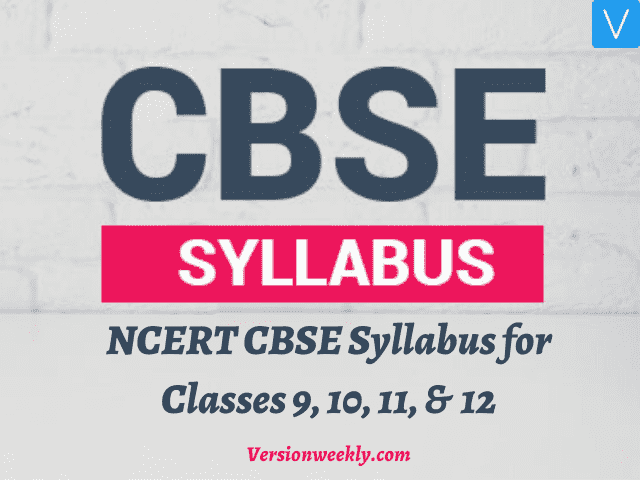The Central Board of Secondary Education (CBSE) has revised the curriculum for classes 9 to 12 on July 7. Union HRD minister Ramesh Pokhriyal tweeted about the syllabus cuts and announced the circular of the revised syllabus for the academic year 2020-21.
The objective is to reduce the exam stress of students due to prevailing health emergencies and prevent learning gaps. The rationalisation of syllabus up to 30 percent has been undertaken by the board for nearly 190 subjects as a onetime measure only.
Looking at the extraordinary situation prevailing in the country and the world, #CBSE was advised to revise the curriculum and reduce course load for the students of Class 9th to 12th. @PMOIndia @HMOIndia @PIB_India @MIB_India @DDNewslive @cbseindia29 @mygovindia
— Dr. Ramesh Pokhriyal Nishank (@DrRPNishank) July 7, 2020
Reduced syllabus for Science and Mathematics: Important topics
The most concerned question, “Is there something to get worried about?” the answer is “No.” As per the new Science syllabus topics like Basic Metallurgical processes; Corrosion; Nomenclature of carbon compounds containing functional groups have been removed from the Chemistry section.
For the upcoming session, students will need to focus majorly on practicing the chemical reactions and equations, acid, and base reactions. For that, they can make a list of reactions with their names and revise them frequently.
In the Biology section, students can start with the understanding of reproduction of organisms; the process of photosynthesis with detailed diagram and reaction involved in the process. Topics such as Control and coordination in animals; Nervous system; Nuclear energy has been eliminated from the revised syllabus.
Physics section
Human eye; Electric Generator that used to be a major part of physics and takes more attention from students have been removed. Thus, now the major parts of physics will be Light -prisms, refraction, reflection thorough practice of their corresponding diagrams and practice numerical based questions will help the student to make a good score.
Effects of current and Magnetics effects of current contains 15 per cent – 20 per cent weightage in the Science exam.
Revising the fundamental concepts and practicing numerical based questions for the corresponding topics will make them more efficient to solve problems.
The rationalised syllabus of Mathematics excludes topics like Cross multiplication method; Situational problems based on quadratic equations; Area of triangle; Frustum of cone; Step deviation method for finding mean. Now, the important topics are Linear equations in Two variables, A.P., Triangles, Trigonometry, Coordinate Geometry, Surface areas and Volumes, and Statistics majorly.
Students can start their preparation with NCERT problems; making a list of formulae, theorems and revising them regularly and practicing the questions based on them.
How to prepare for CBSE exams
The next question comes up is “How to study with the updated syllabus?”. The answer is “There is plenty of time to prepare for reduced syllabus, so relax, chalk out your time-table and start preparation”.
Start with NCERT which is the ace of the CBSE, practice NCERT exemplar, and keep practicing the previous year’s questions for these topics.
Students can also take help from books available in the market with the revised syllabus like “Pearson 2021 Question Bank Science/Mathematics”. Based on the recent changes made by CBSE in their curriculum, the new series features a comprehensive, systematically collated, and well-developed summary of chapters to help students prepare for the exam.
For quick revision, the question banks include 1000+ practice questions, covering previous year questions and 500+ MCQ’s, fill in the blanks and VSA type questions as per CBSE guidelines.
